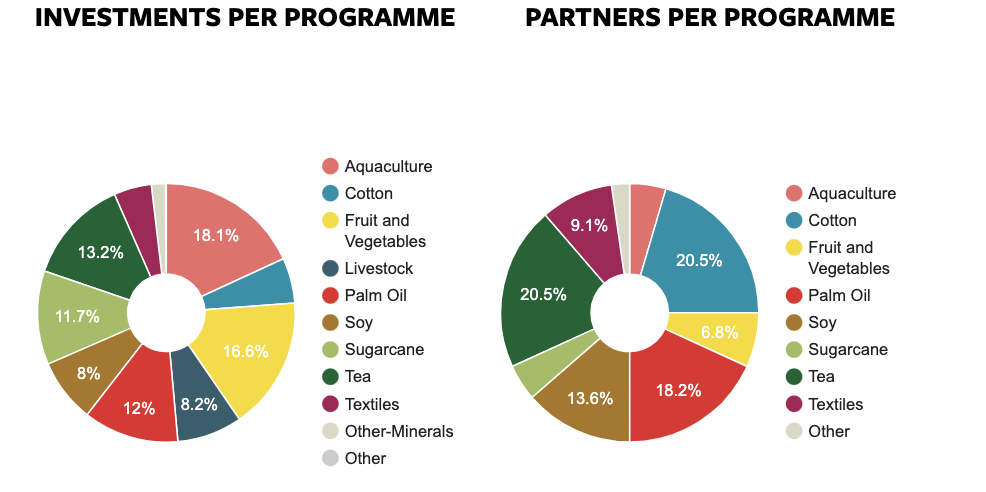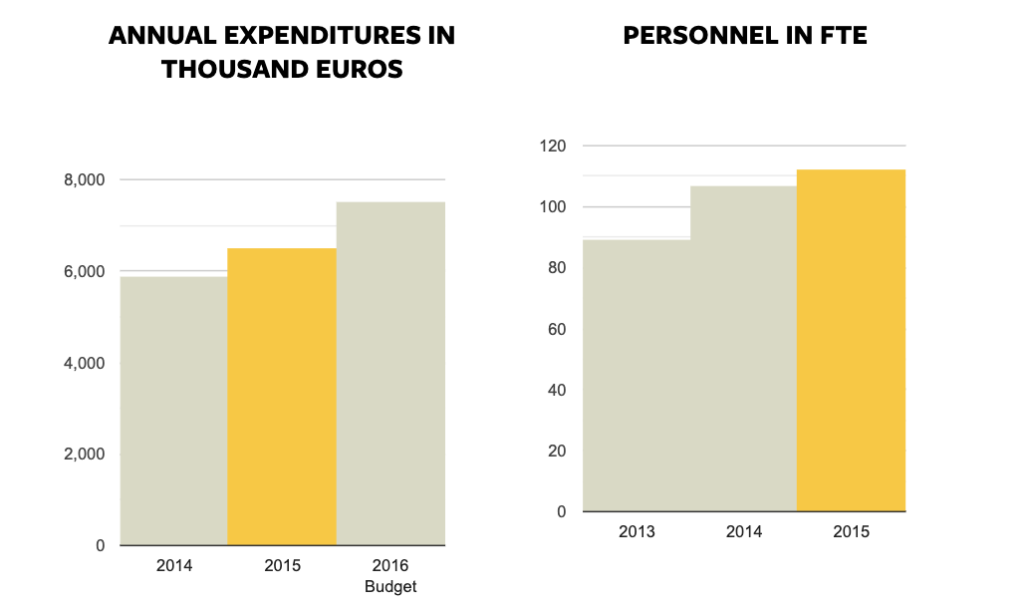REGIONAL COMMODITY PROGRAMMES
Projects being implemented at Solidaridad South & South-East Asia cover a variety of agro-climatic and socio-economic conditions. Partner experiences in implementing Better Cotton projects provide a rich source of knowledge that can inform future strategies for implementing farm-based interventions with smallholder cotton farmers.

Solidaridad has implemented the Sustainable Agriculture, Food Security and Linkages (SaFaL) project in five south western districts of Bangladesh. In many ways, the SaFaL project is contributing to the adaptive capacity of its beneficiaries through economic development and decrease of climatic exposure and sensitivity of agricultural, dairy and aquaculture products using an improved ecosystem-based approach.

The palm oil programme was set up to optimize the livelihood potential of oil palm cultivation and reduce negative impacts of palm oil production. Solidaridad works with players in the palm oil supply chain (farmers, processors, traders, end-users, investors) and contributes to a policy environment that is conducive toward better practices.

Solidaridad is supporting smallholder soy producers to produce more with fewer inputs, use land and water efficiently and participate in multi-stakeholder engagements. This will help to improve livelihoods of a large number of smallholders by reducing poverty and creating better societal relations and ecologically sound supply chains.

Solidaridad South & South-East Asia worked in partnership with the International Finance Corporation (IFC) and leading sugar mills in setting the direction for water efficient sustainable production in India. This initiative has addressed two imperative issues: improving sugar business sustainability and providing economic benefits.

The Trustea programme seeks to facilitate a locally developed Indian tea code which is meaningful, cost effective and practical to implement without compromising on globally accepted core sustainability standards. The programme was developed after a series of consultations with Indian tea industry stakeholders because it is one of the largest in terms of size and targets for introducing sustainable tea in India for the first time.

Solidaridad continues to position itself in a strategic role to bring established best practices to scale; mainstreaming sustainable design and procurement at brand level whilst promoting wider uptake of sustainable production techniques at supplier level. Concurrently, work has also begun in emerging textile producer countries where Solidaridad will seek to ensure the costly lessons from established markets are learnt.

DEVELOPMENTS
Asia is witnessing a tremendous economic growth. During 2015, India emerged as the fastest growing major economy in the world, while the Chinese economy also continues to grow. In spite of political turmoil and violence, Bangladesh grew by more than 5%. According to the World Bank, 70% of the world’s middle class will reside in India and China by 2030 due to this growth. This rapidly growing middle class is already demanding for more food, feed, fibre and fuel. Most of the food businesses are eagerly looking forward to cater to this increased demand. However, in order to do so, it requires almost doubling the present farming output.
However, what we are seeing is the phenomenon of a rapidly dwindling farmer base. For example, India is losing more than 2,000 farmers every single day since 1991. The overall number of farmers has dropped by 15 million in the last 20 years. Most of the farmers are old people because the young generation does not think farming is profitable. Major challenges like depleting ground water reserves, reducing size of the farm lands, climate change and low value addition is making farming unviable and unattractive.
The effect of the high level of air pollution in Indian cities, the global concerns about forest fires in Indonesia or effects of cyclones and floods in Bangladesh, have made governments consider sustainable economic growth more often as a way forward. For example, India has emphasized steep increases in “non-fossil” fuel sources, which will amount to 40% of electricity capacity by 2030.

ACHIEVEMENTS
Solidaridad, as part of the Farmers Support Programme funded by Dutch government, IFC and Indian sugar companies in a public-private partnership process, continued to have major sustainability impacts in the sugarcane supply chains of India. It has expanded its coverage and is directly supporting 300,000 sugarcane smallholders now.
In 2015, the sustainable sugar programme in India saved more than 150 billion litres of water across 14 mills through demand side efficiency at the farm. There is an increase in productivity of 5% on an annual basis across all the mills. The increase in yield and intercropping provided increased income on an average of $1,200 to $2,000 per annum/hectare.
The sustainable soy programme in India has successfully supported about 80,000 smallholders in major soy growing provinces that cover about 93,000 hectares under socially and environmentally sustainable soy in line with RTRS principles.
The Trustea programme for a local Indian standard for tea production that was co-developed and implemented by Solidaridad with funding support from IDH, Unilever and Tata, reached a new record in 2015. Trustea emerged as the largest tea code in a country (India) with more than 227.3 million kilos of tea verified. The project reached out to 441 tea estates with 215,528 workers (50% women), and 13,578 smallholders working under Trustea sustainability standard guidelines.
Solidaridad also initiated first major inter-REC cooperation between India and China for responsible minerals programme together with Unilever Asia Limited.

PARTNERSHIPS
Solidaridad South and South-East Asia has developed several cross-sector partnerships in order to have maximum impact on the ground.
The regional office continued to work closely with a range of donors to implement programmes. Key amongst them were the Dutch Embassy in Bangladesh for the SaFaL programme, RVO for the water efficiency programme in sugarcane in India, IDH, Unilever and Tata for sustainable tea programme in India, and the Packard Foundation for sustainable palm oil in Indonesia.
Solidaridad further strengthened its partnerships with major business players in the food sector of India, namely: Hindustan Unilever Limited, Tata Global Beverages Limited, Ruchi Soy, Olam International, EID Parry, NSL Sugar, Rajshree Sugar. In garments, Solidaridad collaborated with Bestseller and H&M. Solidaridad also facilitated 14 company/private-sector organization investments in the SaFaL supply chains of Bangladesh.
ORGANIZATION
Solidaridad operation in the region is growing rapidly. In 2015, it was operating in seven countries with 11 offices in South and South East Asia. The staff capacity rapidly grew from 107 FTEs in 2014 to 142 FTEs in 2015. By 2016, it is expected to grow to 228 FTEs. The reasons for this growth are changes in our business model where our business partners increasingly seek Solidaridad’s support to directly implement change in their supply chain. Most of the staff in regional offices are drawn from diverse backgrounds and are experts in delivering high value services to our business partners and donors. One of the benefits of such model is increased efficiency in delivering projects and the ability to undertake more complex activities which are difficult to conduct in an out-sourced model.
The regional office has put in place policies around human resource management which ensures young team members are always assigned tasks in a team with senior managers or specialists in the lead. The team members are constantly exposed to cutting-edge sustainability related trainings in different parts of the world.
Total income of Solidaridad South and South-East Asia in 2015 was €65,78,042 out of which programme expenses accounted for €60,68,842 (95% of total expenses) administrative expenses €324,580 (5% of total expenses including fundraising, organizational and communication costs). For 2016, the regional office has a secured budget of €12,691,929, which is an all-time high.
